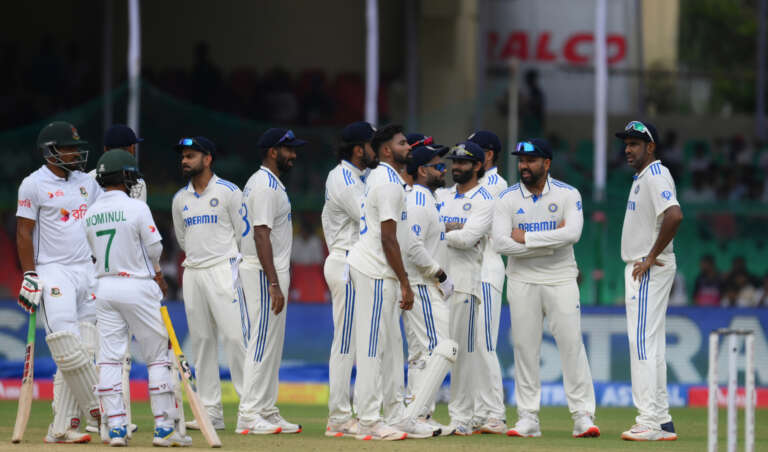Rugby: Union, League and the Global Game
Rugby is a sport of physicality, skill and deep tradition that has grown from local clubs to a global phenomenon. Played primarily in two main codes—Rugby Union and Rugby League—the game combines strategic kicking, dynamic running, and intense contact. Whether you’re watching the drama of a Rugby World Cup final or the week-in, week-out grit of domestic club rugby, the sport offers powerful narratives, fierce rivalries and a passionate fanbase across continents.Origins and early history
Rugby’s roots trace back to 19th-century England. The sport is commonly associated with Rugby School, where—in popular lore—William Webb Ellis picked up the ball and ran with it during a football match in 1823. Whether apocryphal or not, the story captures rugby’s early divergence from association football. By the late 1800s clubs and county teams were well established, and the first international Test match (Scotland vs. England) was played in 1871. Over time the sport spread through the British Empire and beyond, taking strong hold in nations like New Zealand, Australia, South Africa, France, and the Pacific Islands.Union vs League: What’s the difference?
Rugby split into two codes in 1895 over issues of professionalism and compensation: Rugby Union and Rugby League. Key differences include team size (Union plays 15-a-side, League 13-a-side), tackle rules, and scoring nuances. Union places emphasis on set pieces—scrums and lineouts—and contestable possession, while League is often faster with a more continuous play style focused on quick sets and tactical kicking. Both codes have evolved professionally and attract passionate followings, though Rugby Union generally dominates international competition while League has powerful domestic followings in northern England and parts of Australia.Major competitions and calendars
Rugby’s competitive landscape is rich and multilayered, spanning international tournaments and top domestic leagues:- Rugby World Cup (Union) – Held every four years, the RWC is the pinnacle of international rugby, featuring 20 nations competing for global supremacy.
- Six Nations Championship – An annual northern-hemisphere classic featuring England, France, Ireland, Italy, Scotland and Wales, loaded with tradition and fierce rivalries.
- The Rugby Championship – The southern-hemisphere contest between New Zealand, Australia, South Africa and Argentina, delivering high-quality, fast-paced Test rugby.
- Top European competitions – The Heineken Champions Cup and domestic leagues such as England’s Premiership and France’s Top 14 provide intense club rugby with heavy investment and global talent.
- Super Rugby – Historically the premier club competition in the southern hemisphere, Super Rugby has evolved in format but remains a showcase for southern talent.
- Rugby League Competitions – The Super League (Europe) and NRL (Australia) are the premier domestic competitions for Rugby League, with their own grand finals and international tests.
Iconic players and legends
Rugby’s history is packed with players who became national heroes and global icons. From New Zealand’s legendary All Blacks—greats like Richie McCaw and Jonah Lomu—to South Africa’s Siya Kolisi and France’s Serge Blanco, rugby heroes have shaped the sport’s identity. Other notable names include England’s Jonny Wilkinson, whose drop goal sealed the 2003 World Cup, Australia’s David Campese for his attacking flair, and Wales’ Gareth Edwards for his era-defining skill. In Rugby League, names like Clive Churchill, Andrew Johns and Cameron Smith stand tall for their code.Culture, identity and fan traditions
Rugby is deeply woven into national identities in several countries. The All Blacks’ haka is a powerful pre-match ritual symbolizing cultural pride, while in Wales rugby is a core part of community life and national identity. Club rugby fosters local loyalties that span generations. Matchday rituals, chants, and post-game camaraderie are central to the sport’s social fabric. Additionally, the grassroots club system remains a crucial pipeline for talent and community engagement.The growth of women’s rugby
Women’s rugby has grown exponentially in recent years. The Women’s Rugby World Cup, expanding domestic leagues and professional contracts are raising standards and visibility. Stars such as England’s Marlie Packer, New Zealand’s Portia Woodman and France’s Marjorie Mayans are bringing new audiences and inspiring participation at all levels. Investment in women’s pathways and media coverage is changing the landscape rapidly.Player welfare, safety and modern challenges
As a high-contact sport, rugby faces important challenges around player welfare—particularly concussion protocols, long-term health and the physical toll of professional schedules. Governing bodies have introduced stricter head-injury assessments, improved tackle coaching, and load management strategies to protect athletes. Financial sustainability for clubs, global calendar congestion, and balancing domestic and international priorities are other ongoing issues the sport must manage.Innovation and the future
Technology and analytics are reshaping coaching, recruitment and performance monitoring in rugby. GPS tracking, video analysis and sports science help teams optimize player conditioning and tactics. The sport is also experimenting with law variations and competition formats to boost entertainment value and global reach. Emerging markets—Japan, USA and parts of Africa—offer significant growth opportunities, while traditional powers continue to invest in youth development.Why rugby still matters
Rugby endures because it combines physical courage with tactical nuance and community spirit. From epic World Cup clashes to local grassroots fixtures, the sport continues to produce unforgettable moments and cultural significance. Whether you’re drawn to the power of the forwards, the creativity of the backs, or the drama of a last-minute penalty, rugby offers a rich, layered sporting experience.Rugby’s dual-code heritage, global footprint, and vibrant culture make it a compelling cornerstone for any sports site. With expanding women’s competitions, growing markets, and ongoing focus on player welfare and sustainability, the sport is entering a new chapter—one that promises broader participation and fresh stories for fans worldwide.Rugby Coverage on WorldSportTalk.com

Rugby
Rugby 2025 Updates & Matches To Look Out For
Rugby 2025: Key Developments, Rising Forces & The Battle for Global Supremacy With the 2025 rugby season underway and qualification for the 2027 Rugby World













